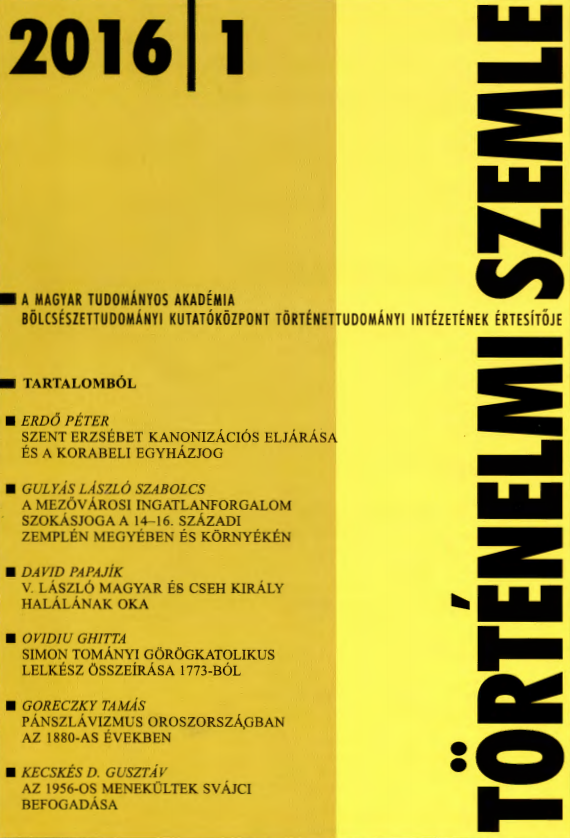Eger választópolgárai a 19. század közepén
The Voters of Eger in the Middle of the 19th Century
Author(s): József PapSubject(s): Geography, Regional studies, Political history, Social history, Electoral systems, 19th Century
Published by: Magyar Tudományos Akadémia Bölcsészettudományi Kutatóközpont Történettudományi Intézet
Keywords: voters; Eger; 19th century; Hungary; history;
Summary/Abstract: The year of 1848 brought about important changes in the political life of Eger, a town in northern Hungary. After a century-long struggle, the market town had finally achieved its aim of having independent parliamentary representation of its own. This opened the way before doing politics actively. Whereas suffrage had previously only belonged to the urban nobility, now a wide layer of burghers had access to the right to vote. Parallelly, the circle of those electing, and potentially elected to, the local body of representatives also expanded considerably. The present study analyses these two groups of voters in the period of the first general elections. Based on the electoral rolls, it explores the development in the numbers and composition of the group of voters, and tries to define those possibilities of social historical research which can possibly be undertaken with the help of such lists. Electoral rolls are frequently neglected sources of social history. Yet their importance in the case of settlements and electoral districts is beyond doubt, as they generally contain some 20 to 25 per cent of the adult male population, and some basic data (age, habitation, profession, wealth and revenues as suggested by census category) can easily be gained from them. In the case of Eger, in particular, the electoral rolls drafted for the first general elections make it possible to have a closer view of the town’s society in the middle of the 19th century, or more exactly of that part of it which had the right to vote. Although an examination of the story’s actors with regard to the registers is inhibited by the lack of sources, certain remarks in the electoral rolls, and the peculiarities in the application of the various categories, can nevertheless be put to use in this important topic of the history of mentality as well.
Journal: Történelmi Szemle
- Issue Year: 2016
- Issue No: 01
- Page Range: 149-164
- Page Count: 16
- Language: Hungarian

